In 2009 Steven Porfiri was accused of never having played a video game before by someone on a GameFAQs message board, and the insult has haunted him ever since. Now, as the Senior Games Writer for Merry-Go-Round Magazine, he’s finally been given a platform to prove that not only has he been playing video games, he writes about them as well. I Played a Game Once is an inside look into what he is playing, and how it has any bearing whatsoever on our current moment. It’s basically like Carrie Bradshaw’s column but with more discussions about save-scumming.
I think a combination of The World at Large and coming to terms with yet another year added on to my life (It was in January and if you didn’t at least say “HBD” believe me, I have taken notice) made me want to just kind of get up and go. For some reason I was called to the desert, and while the arid expanse of Joshua Tree National Park did fulfill many of my FALLOUT: NEW VEGAS dreams, I found myself yearning for something a little bit more, or something a little bit different.

For a while it was the only way to pick up UNTITLED GOOSE GAME on PC so what was I gonna do?
I remembered that many moons ago I took advantage of a free giveaway in the Epic Store and picked up WHERE THE WATER TASTES LIKE WINE. (Really quick, I don’t know if it’s lame to like the Epic Store, but man, it’s worth downloading for the free games every month. Sometimes you find some real gems. This is where I picked up INTO THE BREACH and ASSASSIN’S CREED SYNDICATE and a couple others I’ve had my eye on.) As someone who tries to position themselves as a story-focused gamer, WHERE THE WATER TASTES LIKE WINE feels like it’s trying to call my bluff. A meditation on the power of stories and the phenomenon of storytelling, the player is a nameless traveler hoofing it across the United States in the 1930s, on the heels of the Dust Bowl, the Beat Movement, and the New Deal. After losing a poker game with a wolfman, the player must now travel the country collecting stories from those that live there. And not just collecting, spreading stories as well, allowing them to change and grow as those that re-tell them forget, embellish, or otherwise change important details in the tale.
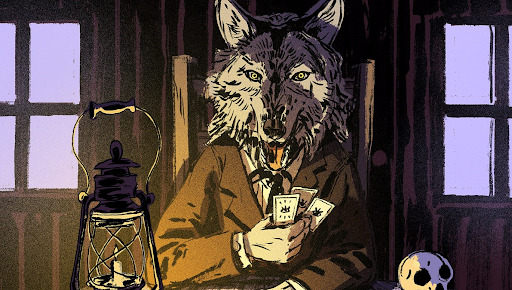
I dunno I’m thinking whatever this guy says happened, happened
The stories are also used as tools. The player is tasked with winning the trust of various characters that are also wandering the land, and the way to do that is to tell them the kind of stories they want to hear. The stories you collect fall into various categories and subcategories. They’re sorted into various themes according to the cards of the major arcana, where things under the Judgement card reflect a choice the player made and stories under the Lovers card reflect stories about someone that loves something or someone. Each story is divided up into how the story is supposed to feel, be it happy, sad, exciting, hopeful, scary, adventurous, and so on. The characters the player encounters will ask for a specific feeling, not a specific theme, and it’s up to the player to remember how the event went in order to serve up the correct story.
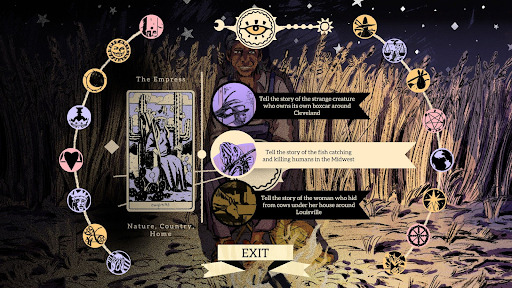
Yeah, this all sounds hopeful
Recently, I wrote a column about Greek gods and the way their stories intersected with the lives of the people that told them, believed in them, and used them as lessons in their own lives. WHERE THE WATER TASTES LIKE WINE also, I feel, focuses heavily on mythology and the interplay between it and the way people live their lives. I don’t think it’s anything about the 1930s in particular, but the stories encountered and the character portraits presented are those inextricably tied to the mythology of America. WINE’s presentation of Americana, to its credit, not only focuses on the folk tales and legends you’d see in Walt Disney animations, but also facets of America’s history buried under the capitalism-praising yarns extolling rugged individualism. I suppose to compare it Greek mythology, if worship of Zeus was the legend of Paul Bunyan, stories of brutal labor crackdowns and the hardships of sharecroppers are more like the cult of Zagreus.
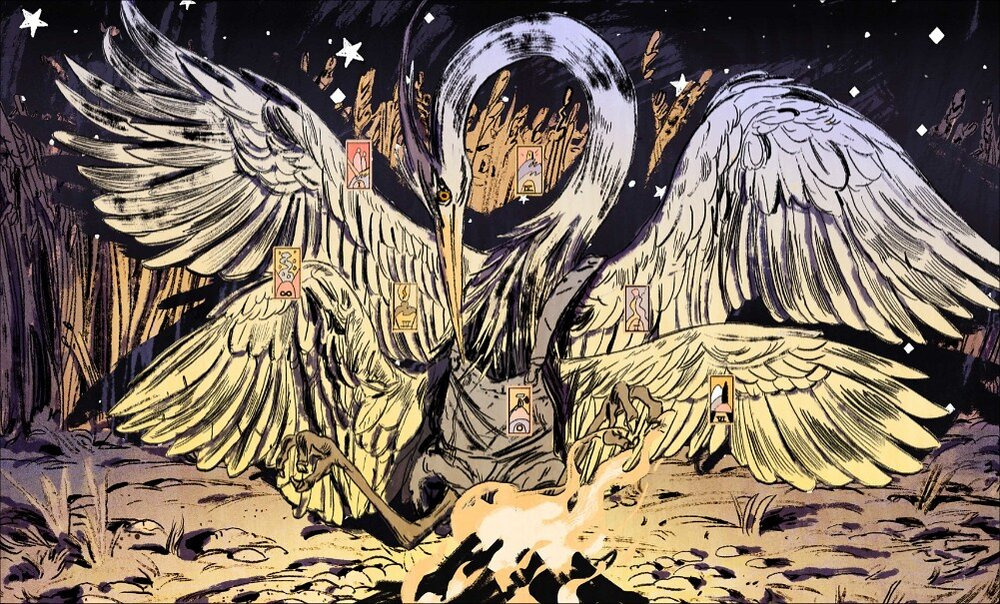
This, uh, this feels like Zeus
Encountering these stories honestly filled me with a fair bit of confusion at times. Maybe there is, in fact, something about that period of American history that hits just a little bit different. It’s a time that’s at once a direct reflection of our current society, but still alien enough to think of as a fabrication; more of a fantasy world than the collection of events that lead to this present moment in time. Maybe it’s just the idea of traveling freely from state-to-state sounds especially fake right now, but the game is a tacit acknowledgement of the reality that it was once possible, but while what was no longer is, we are still the same country in which these stories and people lived.
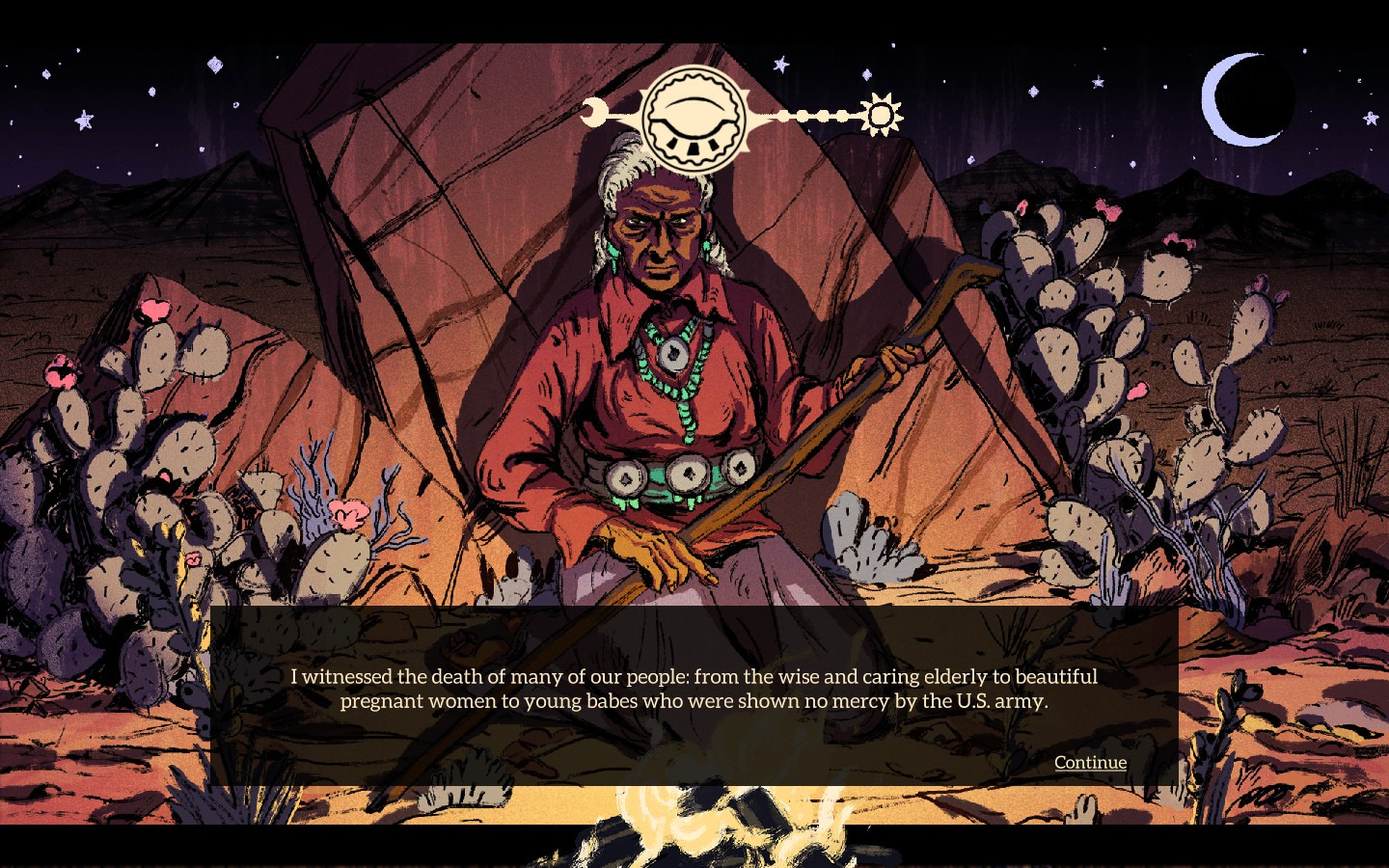
For better, but often for worse
WHERE THE WATER TASTES LIKE WINE provided an interesting sense of retrospection, and the solitary, trancelike gameplay gives a space to take it all in. I don’t exactly want to call it a “boring” game, but it does allow for long stretches of relative inactivity as the player makes their way from New York to Portland to Miami to San Antonio. This feels intentional, as on one hand it mimics the solitude of traveling on one’s own and gives the player space to observe their own feelings about the stories they’ve picked up along the way.
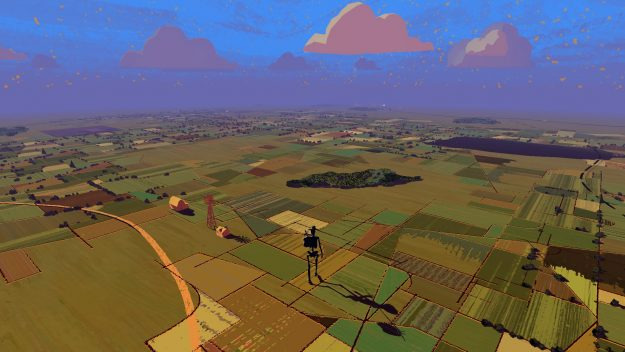
Pictured: Space
The game is trying to show how the stories we tell and the way we tell them connect us like spools of thread, and that those threads can be woven together to create the tapestry of our culture, in particular our American culture. I initially fired it up for the sense of solitude and the feeling of going on a long trip by myself in a world that’s become difficult to navigate in myriad ways. But what I came away with was a sense of wonder at the ways the country has changed since the stories I was hearing—and how it’s remained the same.
Also the soundtrack absolutely rips. Ryan Icke is credited as composer on the soundtrack, and maybe I’m just a sucker for twangy guitars and songs about being alone, but oooh man does that stuff work for me.
Check out previous installments of I Played A Game Once here!


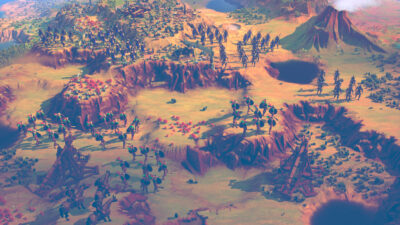
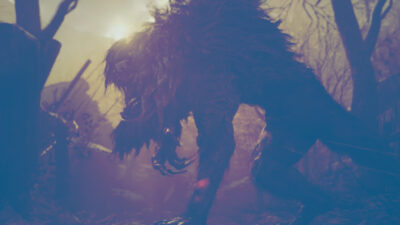
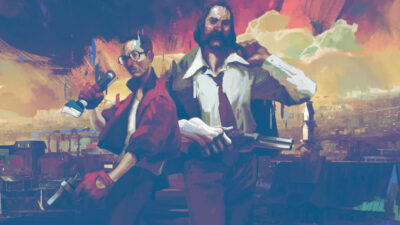











Comments